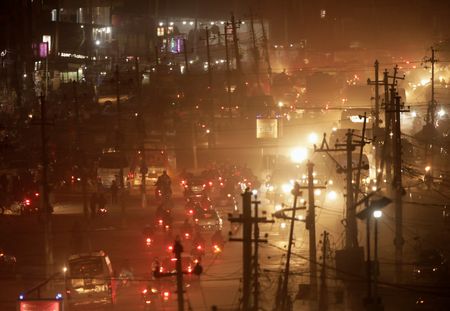By Gopal Sharma
KATHMANDU (Reuters) – Nepal will end an eight-month ban on the import of cars, expensive mobile phones and liquor on Friday as the country’s foreign currency reserves have increased, officials said on Thursday.
The Himalayan nation, tucked between China and India, restricted imports of cars, gold and cosmetics in April saying its reserves could barely support imports for fewer than seven months.
But the central bank said on Thursday that reserves had increased 1% to $9.63 billion as of mid-November from $9.54 billion in mid-July – sufficient to cover imports for 8.4 months.
“The government feels that the reserves are in a comfortable position now,” Commerce Ministry spokesperson, Narayan Prasad Regmi, told Reuters.
Imports of seven other items, including cosmetics, were eased in September.
Officials said the ban on imports had adversely affected the government’s revenue collection.
Revenue collection could be 40% less than the target in the first four months of the current fiscal year that started in mid-July, said Punnya Bickram Khadka, a director at the Department of Customs.
Import of cars is among the top-five sources of revenue for the government.
Nepal’s ruling alliance has emerged as the largest group in the Nov. 20 parliamentary election and is expected to form a new government in the next few weeks.
Unless revenues rose, the new government would be “forced to borrow and squeeze credits to the private sector”, Deependra Bahadur Kshetri, a former central bank governor, told Reuters.
Central bank data showed remittance inflows rose 10.8% to $2.93 billion in the first four months of the current fiscal, year which started in mid-July, from a year earlier.
Income from tourism, which is emerging from pandemic-related restrictions, jumped nearly 64% to $256.27 million in the same period.
(Reporting by Gopal Sharma; Editing by Krishna N. Das)

